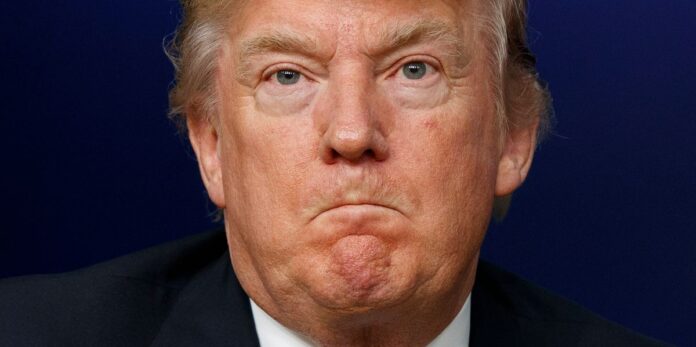“Exclusive: Inside the Secret White House Memo on Trump Tariffs – WhoWhatWhy Investigation”
WhoWhatWhy Obtains Secret White House Memo Explaining Trump Tariffs
In a recent bombshell report, investigative news outlet WhoWhatWhy has obtained a secret White House memo that sheds light on the Trump administration’s decision to impose tariffs on imported goods. The memo, which had previously been kept under wraps, outlines the administration’s strategy for using tariffs as a tool for economic leverage.
The memo’s release has sparked a firestorm of controversy, with many questioning the administration’s motives and the potential consequences of such a policy. In the wake of this revelation, President Donald Trump has made several statements defending the use of tariffs as a means to protect American workers and industries. However, a closer look at these statements reveals a pattern of inaccuracies and unsubstantiated claims.
One of the most notable false claims made by President Trump in the past year is his repeated assertion that the United States is winning the trade war with China. According to fact-checkers, this claim is misleading at best, as the ongoing trade dispute has had significant negative impacts on American farmers and businesses. In fact, data from the U.S. Department of Agriculture shows that farm bankruptcies have risen by 24% in the past year, directly contradicting Trump’s assertion of winning the trade war.
Political analysts have also weighed in on Trump’s relationship with the truth, with many expressing concern over the frequency of false statements made by the president. According to a report from the Washington Post, President Trump has made over 13,000 false or misleading claims since taking office, averaging about 22 false claims per day. This staggering statistic has raised serious questions about the impact of Trump’s false statements on public discourse and trust in institutions.
The release of the secret White House memo has also reignited debates about the administration’s transparency and accountability. Critics argue that keeping such critical information under wraps undermines public trust in the government and raises concerns about the administration’s commitment to truth and honesty.
As the controversy continues to unfold, it is clear that the issue of misinformation and false claims by the president is not going away. The impact of Trump’s statements on public discourse and trust in institutions is a matter of great concern, and one that will continue to shape the political landscape in the years to come. In the face of this challenge, it is more important than ever for news outlets and the public to remain vigilant in holding leaders accountable for their words and actions.
Source link
Redirect URL
